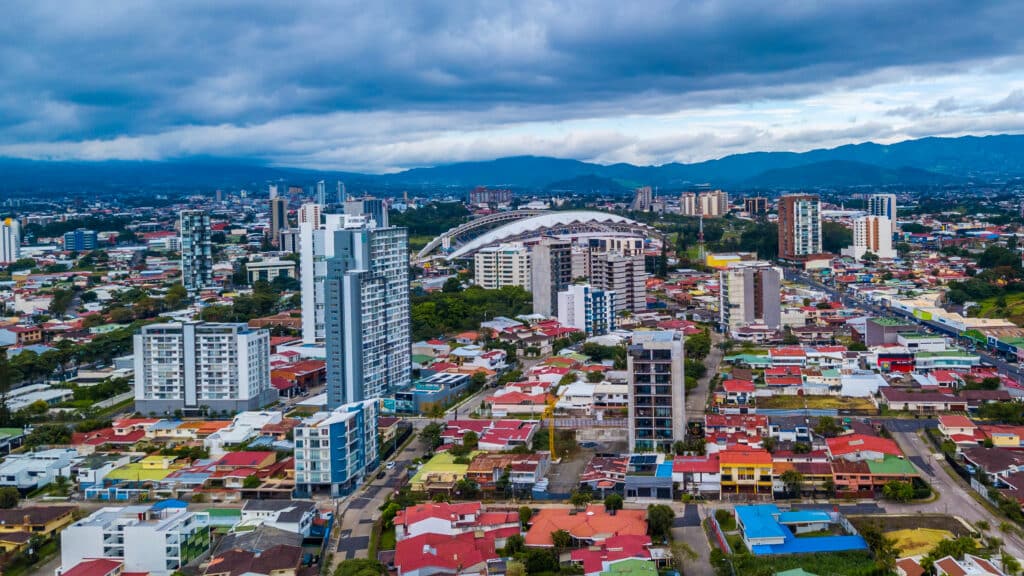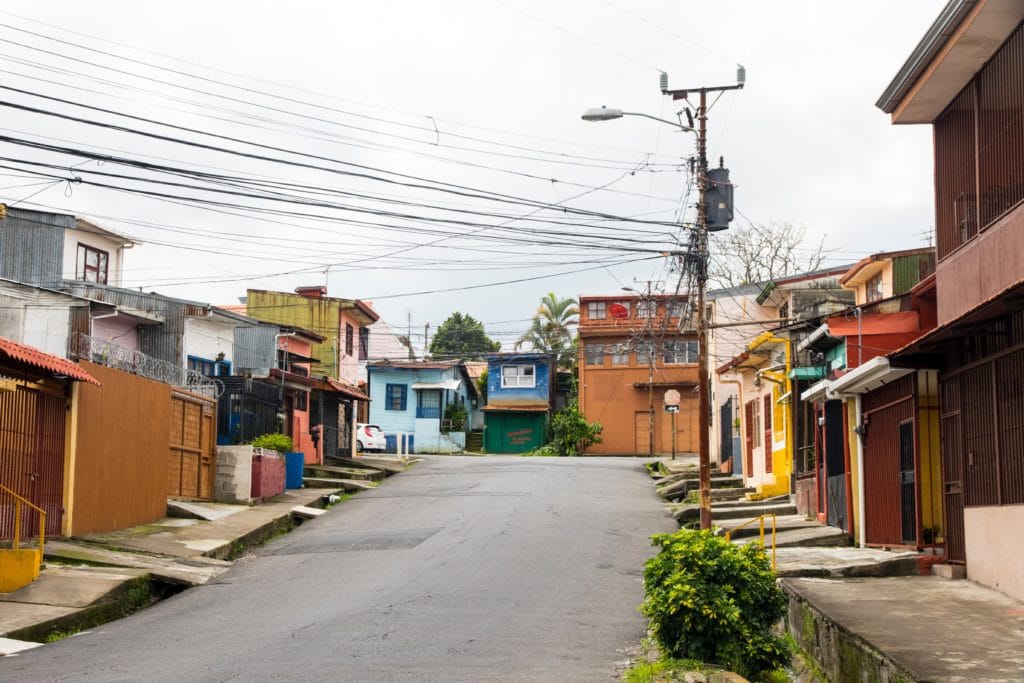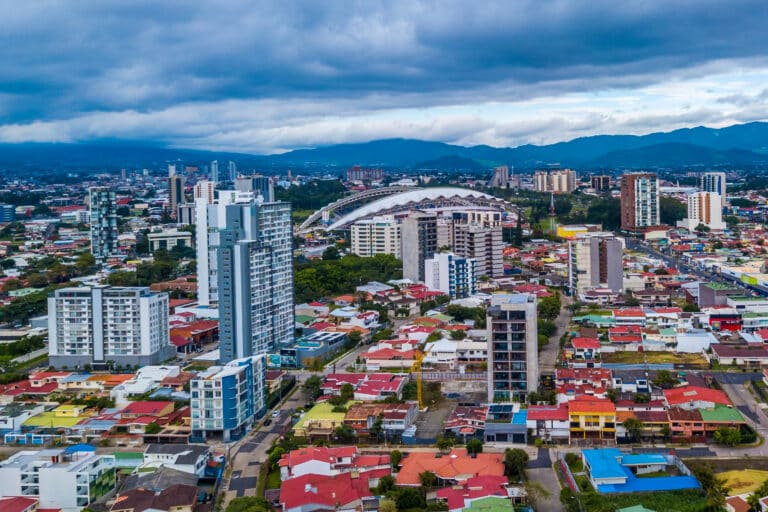
Nestled in Central America, Costa Rica is celebrated for its stunning beaches, verdant rainforests, and welcoming locals. But that’s just the beginning. The country is a sought-after destination for digital nomads, expats, and retirees due to its accommodating property ownership laws. Additionally, Costa Rica is renowned for offering a high quality of life at a relatively affordable cost of living. If you’re thinking about relocating, here’s a detailed breakdown of the costs associated with living in Costa Rica.
Is Costa Rica Expensive?
Costa Rica’s cost of living is generally lower than in the United States, Canada, and most European countries, including the UK. This means your pounds stretch further in Costa Rican cities compared to London or Manchester. According to Numbeo’s 2024 Cost of Living Index, Costa Rica ranks as the 58th most expensive country out of 141 listed. This positions Costa Rica as more affordable than most developed nations but pricier than many developing countries.
Cost of Living in Costa Rica by City
The cost of living in Costa Rica varies considerably by city. The capital, San José, is the most expensive city, while smaller towns such as San Ramón offer a more affordable lifestyle. Below is a quick comparison of average prices in San José and San Ramón, sourced from Numbeo’s cost of living tool:
San José
- Meal in a budget restaurant: £7.50
- Meal in a mid-range restaurant: £40
- Milk (1 litre): £4.80
- Internet (monthly): £41.50
- Gym membership: £38.40
Send and Receive Money Internationally in the UK with Remitly.
Get started with our free mobile app.
Download
San Ramón
- Meal in a budget restaurant: £4.80
- Meal in a mid-range restaurant: £27
- Milk (1 litre): £2.40
- Internet (monthly): £37.50
- Gym membership: £24
Other affordable towns in the Central Valley region include Atenas, Grecia, and San Isidro de El General. These areas offer a more relaxed lifestyle at a lower cost compared to bustling cities or tourist hotspots along the coast.

Key Factors Influencing Costa Rican Cost of Living
Healthcare Costs
Healthcare in Costa Rica is reasonably priced, thanks to its universal healthcare system, the Caja Costarricense de Seguro Social (CCSS). Employees contribute around 23% of their salary to the CCSS, but employers cover 14% of this, leaving workers to pay about 9%. Expats can join the scheme in a similar manner. For those on a tighter budget, the system allows individuals without means to access healthcare for free.
Private health insurance is also an option, with premiums ranging between £48 and £200 per month, depending on income level. This typically covers about 80% of medical costs. Many expats use a combination of public and private insurance to reduce wait times for care. Without insurance, healthcare is still affordable, with GP visits costing around £48, specialist care at £80, and dental exams approximately £160.
Housing in Costa Rica
Housing costs are generally lower than in the UK but have been rising steadily as Costa Rica grows in popularity. Rent prices in Costa Rica are approximately 51% lower than in the UK, according to Numbeo. For example, a one-bedroom apartment in the city centre rents for around £400 per month. Suburban or rural areas offer even cheaper options. While renting is often the most cost-effective choice, purchasing property can be a sound investment for those planning a long-term stay. Properties in popular tourist areas, such as Tamarindo, are significantly pricier than those in less central locations.
Food Prices
Food is generally cheaper in Costa Rica than in the UK, though some items can be similarly priced or slightly more expensive. For example, 1 litre of milk costs about £4.80 in Costa Rica, compared to £1.50 in the UK. Eating out is more affordable, with a meal in a basic eatery costing around £6 and up to £40 in a mid-range restaurant.
Public Transportation
Public transport is inexpensive, with local bus fares costing less than 80p. In cities like San José, public buses and private taxis are widely available, while transport options in rural areas may be more limited.
Schools
Public education in Costa Rica is free and accessible to all children, including expats, provided they demonstrate Spanish proficiency. Private and international schools are more costly but still cheaper than UK alternatives, with international primary schools charging approximately £6,500 per year.

Median Salary in Costa Rica
The average monthly salary in Costa Rica is about £640 after tax. Salaries vary widely depending on the profession:
- Teacher: £775
- Architect: £820
- Financial Analyst: £1,070
- Mechanical Engineer: £1,515
- Attorney: £2,615
Expats seeking work face challenges due to strict visa requirements, which prioritise Costa Rican citizens for job opportunities. Most expats either work remotely or start their own businesses.
Costa Rica Cost of Living FAQs
Is Costa Rica cheaper than the UK?
Yes, the cost of living in Costa Rica is generally lower than in the UK. Housing, healthcare, and dining out are more affordable, though some imported goods, like milk, may be pricier.
How much money do I need to live comfortably in Costa Rica?
A single person can live comfortably in Costa Rica on £1,200–£1,500 per month, depending on lifestyle and location. For couples or families, budgets of £2,000–£3,000 are common.
Is healthcare free in Costa Rica?
Healthcare through the public system (CCSS) is affordable but not entirely free unless you’re unable to pay. Expats and residents contribute based on their income, and private insurance is also widely available.
What’s the internet like in Costa Rica?
Internet services are reliable in urban areas and expat-friendly towns, with monthly costs averaging £35–£45. Speeds can be slower in rural areas, but fibre optic options are becoming more widespread.

